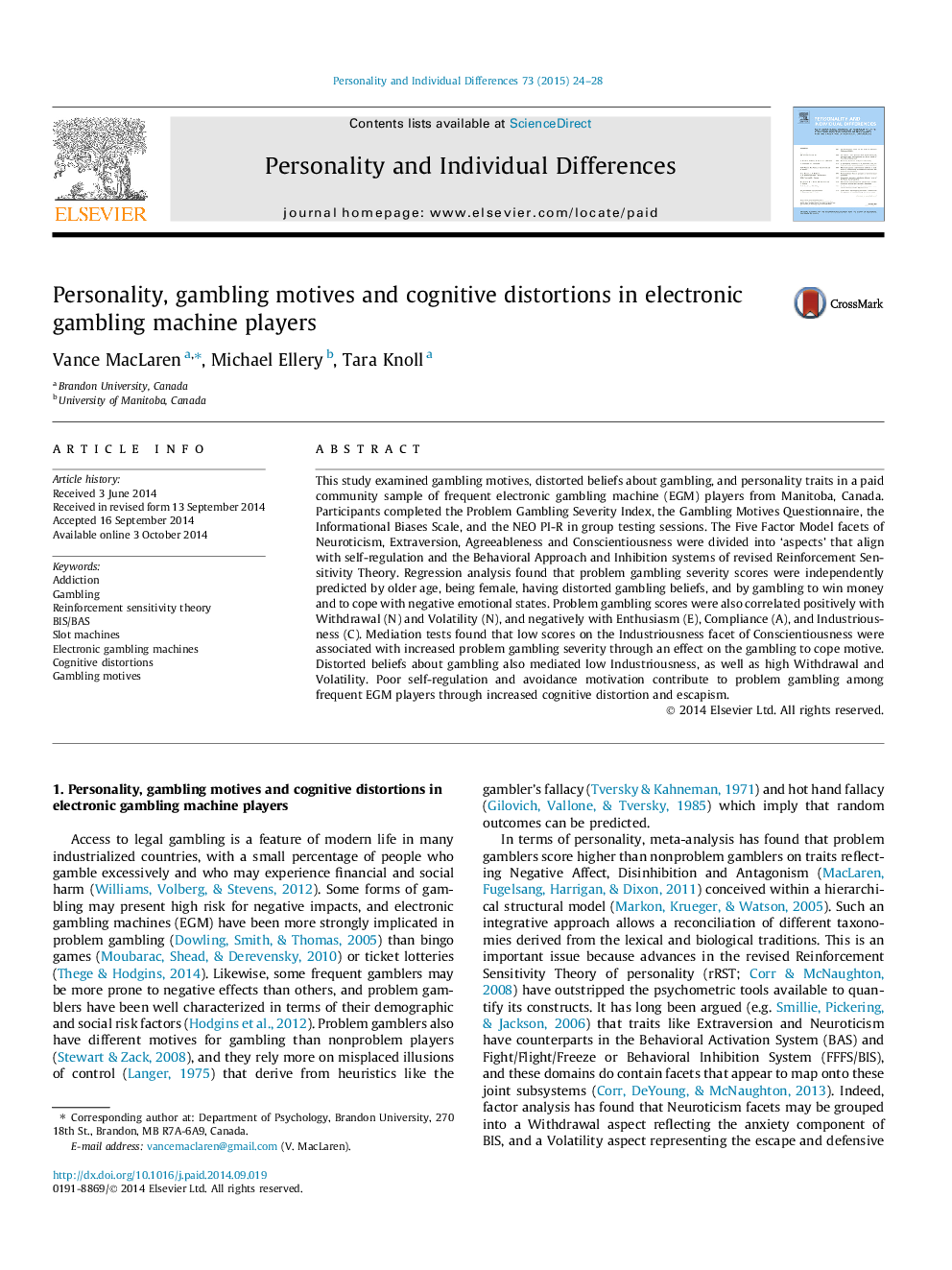| Article ID | Journal | Published Year | Pages | File Type |
|---|---|---|---|---|
| 890283 | Personality and Individual Differences | 2015 | 5 Pages |
•EGM players completed measures of personality, motives and cognitive distortions.•Problem gambling correlated with Coping motive and cognitive distortions.•Cognitive distortions mediated Volatility and Withdrawal aspects of N; low Industriousness aspect of C.•Coping motive mediated low Industriousness effect on problem gambling.•Results interpreted within Revised Reinforcement Sensitivity Theory of personality.
This study examined gambling motives, distorted beliefs about gambling, and personality traits in a paid community sample of frequent electronic gambling machine (EGM) players from Manitoba, Canada. Participants completed the Problem Gambling Severity Index, the Gambling Motives Questionnaire, the Informational Biases Scale, and the NEO PI-R in group testing sessions. The Five Factor Model facets of Neuroticism, Extraversion, Agreeableness and Conscientiousness were divided into ‘aspects’ that align with self-regulation and the Behavioral Approach and Inhibition systems of revised Reinforcement Sensitivity Theory. Regression analysis found that problem gambling severity scores were independently predicted by older age, being female, having distorted gambling beliefs, and by gambling to win money and to cope with negative emotional states. Problem gambling scores were also correlated positively with Withdrawal (N) and Volatility (N), and negatively with Enthusiasm (E), Compliance (A), and Industriousness (C). Mediation tests found that low scores on the Industriousness facet of Conscientiousness were associated with increased problem gambling severity through an effect on the gambling to cope motive. Distorted beliefs about gambling also mediated low Industriousness, as well as high Withdrawal and Volatility. Poor self-regulation and avoidance motivation contribute to problem gambling among frequent EGM players through increased cognitive distortion and escapism.
